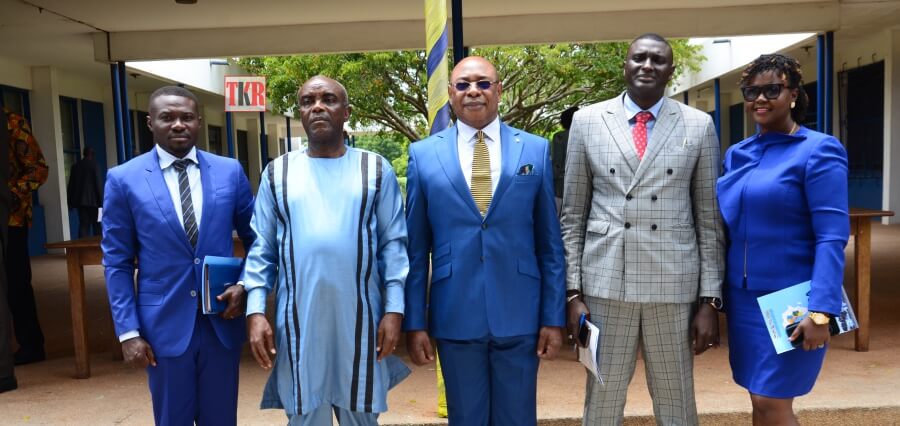Maritime education holds great significance in today’s world for several reasons. It is vital for global trade and the economy, as maritime transportation is the primary means of international trade, facilitating economic growth and stability in any country.
Maritime education plays a crucial role in ensuring safety and security at sea. By imparting knowledge in navigation, ship handling, maritime law, and security measures, it helps prevent accidents, piracy, smuggling, and other maritime threats.
Maritime education promotes international cooperation and governance. It fosters shared understanding, harmonized practices, and adherence to international maritime laws and conventions, contributing to maintaining order, resolving disputes, and ensuring the safety and security of the seas.
It is safe to say that maritime education is significant today due to its role in supporting global trade and the economy, ensuring safety and security, promoting environmental sustainability, adapting to technological advancements, developing a skilled workforce, and fostering international cooperation and governance in the maritime sector.
This high relevance and significance generate the need for well-equipped maritime schools that can foster ideal individuals to serve the industry. The Regional Maritime University aims to foster these professionals.
One of a Kind
The Regional Maritime University is a tertiary maritime education and training institution established in 1958, then named Ghana Nautical College (GNC). In 1983, the college was regionalized to include four West African states, namely Ghana, Liberia, Sierra Leone, The Gambia and one Central African state, which is Cameroon.
The GNC was then renamed Regional Maritime Academy (RMA) and accredited by the national accreditation bodies of its five member states. In 2007, the RMA attained its university status and was once again renamed the Regional Maritime University.
The RMU is the only tertiary institution not only in Ghana but in anglophone West Africa specializing in maritime education and training with regional accreditation and global recognition.
It is the only tertiary institution specializing in maritime education and training in Ghana accredited by external accreditation bodies. Its programs are skills-based, and because of its regional nature, its certification is globally recognized.
Fostering Ideal Professionals
RMU boasts of adequate laboratories well equipped with relevant state-of-the-art equipment that support practical, experiential learning reinforced by field trips to different seaports in Ghana, i.e., Tema, Takoradi and Akosombo, with a view to enabling students to marry theoretical learning to real-life situations.
All RMU students are trained in health and Safety, which includes swimming and firefighting.
Periodic research and surveys by the Research Unit in collaboration with the Marketing Unit are carried out at the university. Currently, its Research Unit is conducting a survey on students concerning their learning experiences and general student life within and without campus to inform policy formulation and curriculum review.
Considering the scientific and technological nature of the world and its dynamics, any reputable educational and training institution must put emphasis on research to stay aloft. This is key in the sense that research outcomes create and refine knowledge, skills and attitudes to ensure versatility in an engagement or environment where polyvalence is required.
Instilling the Culture of Collaboration
With a significant number of residential facilities, the university is able to accommodate both national and international students from different regions in Ghana and different nationalities from different countries. In order to maintain academic sanity and vibrancy of social life on campus, recreation facilities such as football, basketball and volleyball fields, in addition to a gym and a swimming pool, are accessible and shared by both staff and students seven days a week.
A day has also been set aside annually to promote integration, during which staff and students plan together how to prepare local dishes of member and non-member states on sale. The cost is shouldered by the institute and the preparation of the dishes is taken care of by the students.
Ideal Career Assistance
There are very strong partnerships of the University with credible international shipping companies such as Hafnia, Wrijworld and Mcdan shipping company of Ghana that have either established centres or identified representatives on campus for recruitment of high-performing students in various sea-faring skills.
Another strong partnership is the RMU-SMTC Training Centre. SMTC is the main provider of safety training to the global petroleum industry.
RMU is also in partnership with National Association for Heavy-duty Equipment Operators Ghana (NAHEOG); the two institutions jointly provide heavy-duty equipment operation training for the construction and marine industries.
The University has been organizing seminars for the fishermen in its catchment areas on best fishing practices as well as basic safety training in line with the STCW Convention 1978, as amended.
The University also offers scholarships to the indigenes of the community where it is located and also offers them job opportunities for lower-level ranks.
One of the success stories is that Professor Michael Ekow Manuel, an alumnus who is now a Professor and Nippon Foundation Chair; Head of Maritime Education & Training; Academic Dean at the World Maritime University, Malmo, Sweden.
Professor Manuel has offered consultancy services in national and international contexts (private and public) to the International Maritime Organization (IMO), including the United Nations Conference on Trade and Development (UNCTAD). He is the author of the book ‘Maritime Risk and Organizational Learning’ published by Ashgate in London, and other articles in peer-reviewed academic journals.
The RMU prepares its students for the rapidly changing job market in Ghana and beyond through continuous market research (market insights), curriculum reviews and internships to ensure students are equipped with the relevant knowledge, skills and attitude to enable them dove-tail neatly in the job market jigsaw puzzle.
The university has also recently established an education fund funded through voluntary monthly contributions from staff. The objective is to provide scholarships to high-performing students who are faced with financial challenges.









